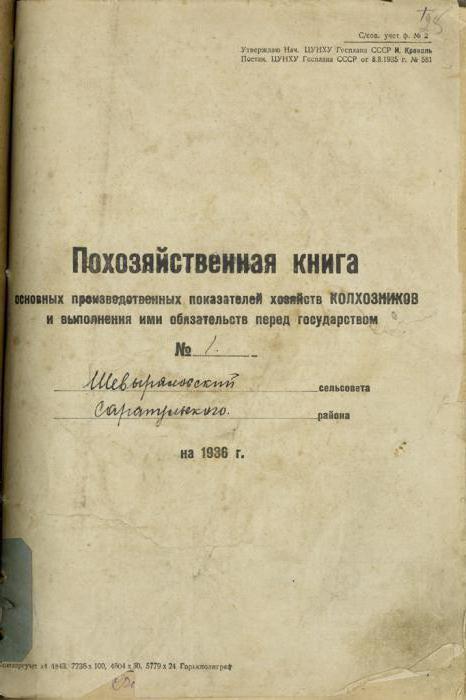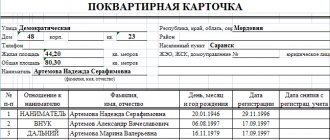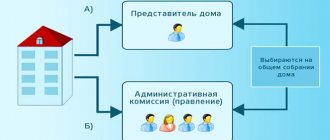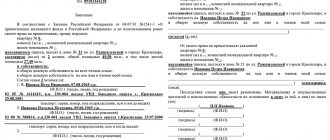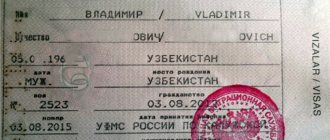Many families want to get the treasured piece of land. In our country, which has undeveloped spaces, land was given out for various reasons, often free of charge upon request or in connection with the formation of a new family. It is advisable for each of us to ask the older generation about the possible availability of unused land.
It is likely that the grandfathers forgot about some plot, and it will be possible to draw up the documents and become a happy landowner without spending money. Now the state has simplified all land procedures so much that it is better to take advantage of it while you have the opportunity.
It is important to know:
- If you received a land plot before privatization on the basis of acts, letters from heads of settlements about the transfer of land, then this article is for you.
- If you were provided with a plot of land with a certificate in the prescribed form, then you can rest easy, you are the owner.
Fortunately, the legislator now allows all those who consider themselves landowners and heirs to register land in their name in a simplified form. In this case, you will need an extract from the household ledger.
What is an extract from a household ledger?
It should be noted that now property registration occurs in a simplified manner for persons who received land plots for use as subsidiary plots, for individual construction, before the advent of the new land law in 2001.
A plot of land for personal farming was issued more often in villages, it is large in size, allows you to plant a vegetable garden and build any buildings, but for individual housing construction it was issued in modern times, usually in the suburbs, it requires compliance with certain rules for building a house, and does not allow for full-fledged gardening.
To become an owner, it is enough to have any of the following documents:
- An order for the allocation of a site, signed by the head of the settlement.
- Property deed obtained from the village administration.
- Extract from the rural household register.
- Another type of information indicating that you have been allocated land, for example, minutes of collective farm meetings, decisions of state farm administration, letters from executive committees on land allocation.
Most often, an extract may be required, even if there are primary documents on the transfer of property, as an additional one.
Since 2010, the requirement of officials to provide a cadastral passport has been considered illegal, since it is optional when registering property rights.
Please note what type of right is listed in the initial certificates:
- own;
- lifelong ownership;
- permanent use for an indefinite period.
Receipt of a legal certificate terminates previously granted rights and you will be deemed to have title to the property.
Household books have been kept from 1934 to the present day. They are an old way of recording the rural population, property, residential buildings, and plots. In conditions of an established procedure for registering property rights, household books are only an additional element of control.
For what purpose do you need to create a household ledger?
The current order of the Ministry of Agriculture regulates the maintenance of records of personal subsidiary plots of the population for the purpose of taxation. Book's contents:
- personal account and territory address;
- composition of property;
- information about the owners of private land;
- the composition of the owner’s family, which helps run the joint household;
- temporarily residing citizens on the territory of the site;
- information about the area of the plot for vegetable gardens and agricultural plantings, cadastral number;
- number of domestic animals (poultry, pigs, cows, bees);
- mark about the use of agricultural machinery and equipment.
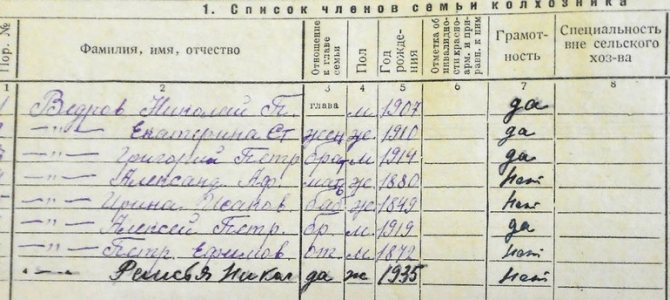
What is it for?
Information from the household ledger is extremely important and is requested in the following situations:
- Privatization of your own plot.
- Transfer of land by inheritance.
- Buying a new allotment.
- Clarification of boundaries.
- Providing information to the cadastre.
It should be noted that until March 2020, permission to put into operation is temporarily not required by the state; information about the ownership of the site is sufficient for registration.
A significant relief for landowners was the acceptance of information from household books in cadastral chambers. The information received is accepted for cadastral registration. Thus, interested parties supplement the databases of regulatory authorities with missing information.
It must be taken into account that the state, by simplifying the solution of land issues, has two main interests:
- Assigning property to the immediate owners to improve the quality of use.
- Replenishment of the budget through land tax revenues.
Regulations
For convenience and control of work with the population in terms of providing services for issuing data from the household ledger, local government bodies formulate regulations.
Most often, these standards include information of the following nature:
- Method for requesting an extract. This may be a request via the Internet, email, or a written statement.
- Names and positions of responsible persons. The numbers of offices, telephones, and working hours of specialists are indicated.
- List of requested information. The form of certification and the number of copies are indicated here.
- List of grounds for refusal to provide a certificate.
- Submission deadlines. They are set by the authorities themselves depending on their workload.
Why is the information incomplete?
In the previously accepted samples of household books, there was information about the housing stock, the place of study or work of the owner of the household, the assigned pension (if any), other notes about the management of the household and residence, and retired members of the household. These and other data are not available in modern books, since they are not indicated in the eighth article of the Federal Law, on which the maintenance of a household ledger is based.
However, this does not negate the fact that local authorities, if necessary, can enter additional, auxiliary information. Such notes are indicated after the section on agricultural machinery.
It is worth considering that Federal legislation does not provide for the allocation of funds for maintaining these documents.
Who is eligible to receive
In general, a request for an extract can be made by:
- citizens on personal matters;
- representatives of organizations;
- government authorities to confirm the facts of land use.
Important innovations: currently, an extract about the previous owner can be obtained by the current owner or a person claiming ownership of the property.
Representatives of legal entities can also make a request by presenting a power of attorney.
When citizens apply, interested parties include notaries, employees of registration chambers, and lawyers specializing in inheritance matters.
Where to receive
You can request a certificate from the household register from the nearest authorities in the area where the land plot is located.
It can be:
- rural administrations;
- village authorities;
- land property management committees;
- multifunctional centers;
- other structures.
Now the extract is provided in a new unified form from 2012 and contains the following mandatory details:
- Information about the owner, his address.
- Primary information that serves as the basis for inclusion in the book.
- Category of allotment, area, location address.
- Type of right to property.
- Last name, position of the person, name of the organization that issued the certificate.
New farms
If a new subsidiary farm appears in a locality, then information about it is written down on one of the blank pages left after the bookmark. However, after five years, this household must be assigned a new personal account number in the new household ledger.
For quick navigation through the book and ease of use, after the alphabetical index, a memo is written on a new page, which indicates the last personal account.
Personal accounts are constant for households throughout the entire period of bookmarking, but can then be changed for one reason or another. In this case, the extract from the household ledger will no longer be correct.
If all members of a subsidiary farm move to another settlement or to another street in the same settlement (here the main criterion is movement within the same village council), the personal account in the accounting book remains the same. Since all subsidiary farms on the territory of the village council have their own unique personal account, it can simply be transferred to the household register of another locality by rewriting it. If the household's owner or tenant changes, the personal account number also does not change, but the household ledger must indicate the details of the person who has become the new owner or tenant. Previous entries, including information about family ties of household members, are crossed out and replaced with current ones.
What is needed to receive
The request can be sent electronically or by registered mail.
According to the regulations, each government agency working with the population informs about the procedure for providing information. This information is usually posted on stands, the organization’s website, and transmitted by telephone.
Typically, several steps must be taken to obtain a certificate:
- Fill out an application for the release of information.
- Submit copies of the required documents according to the list. These are letters, acts, instructions, orders, resolutions. You need to find out in advance about the form of certification; you may need notarized copies.
- To register an inheritance, you will need copies of birth, marriage, relationship, death certificates of the previous owner, and a will.
- Present the originals for review, including your passport.
- If you are acting on behalf of an interested party, bring a power of attorney.
- Take the second copy of the application with a stamp of acceptance by the responsible person.
Price
The state provides the service of issuing certificates free of charge. The state fee will be charged only when submitting an extract for registration of rights.
Due to the fact that the issue of issuing such information is left to the discretion of local authorities, the time frame for receiving the document is also set differently, but cannot be more than 30 calendar days.
If you have any disagreements with the authorities, you will have to resolve the issue by going to court.
Please note that all landowners are required to pay land tax.
Norms
Anyone can analyze the topics covered in the article; for this you can use the following information:
- Land Code of October 25, 2001 No. 136-FZ, as amended on July 13, 2015.
- Law “On state registration of rights to real estate and transactions with it” dated June 17, 1997 No. 122-FZ, as amended on July 13, 2015.
- Law “On personal subsidiary farming” dated July 7, 2003 No. 112-FZ, as amended on June 21, 2011.
- Resolution of the Council of People's Commissars of the USSR No. 185 of January 26, 1934 on the introduction of a household register.
- Order of the Federal Service for State Registration, Cadastre and Cartography dated 03/07/2012 No. P/103 on the introduction of a new form of extract from the household register.
Organization of accounting
Since if this document is filled out incorrectly, it will be impossible to obtain a correct extract for the house from the household ledger, it is necessary to enter information in accordance with all the rules. Data for maintaining this type of document is provided by owners of subsidiary plots on a voluntary basis.
The organization of maintaining books and issuing extracts from household books is carried out by the head of local government bodies, which include the territory containing the farms. Management also appoints officials who are responsible for the safety of documents and their maintenance.
Bookmarking of books is carried out for five years, the basis for which is the legal act of the head of local government. After this time, the manager issues a remortgage act.
Information must be provided by owners or tenants of subsidiary farms annually on the first of July; data is collected by walking around and interviewing members of the farms. The walk-through must be completed no later than July fifteenth.
At the initiative of members of the farm or the owner, the information in the household book can be clarified or supplemented on other dates. This can also be done when applying for an extract from the household ledger.
